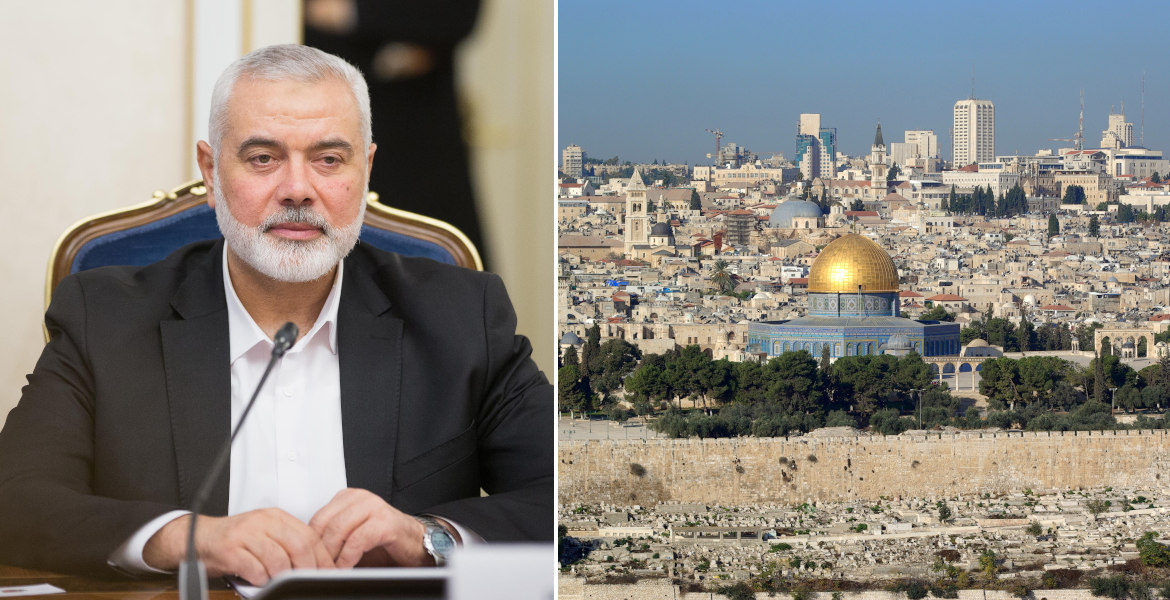In a speech, Hamas political leader Ismail Haniyeh said the group is open to negotiations with Israel to end the war – but that any final agreement must pave the way for an independent Palestinian state with Jerusalem as its capital.
On Wednesday, Haniyeh said Hamas was ready for dialogue with Israel in the hope that such talks could help unite Palestinians in the West Bank and Gaza, the Arabic-language MENAFN news agency reported.
– We are open to discuss any arrangement or initiative that could end the aggression, and lead to a political path that secures the right of the Palestinian people to an independent state with Jerusalem as its capital, the Hamas leader said.
He also warned that excluding Hamas and other armed groups from the post-war settlement process would be a “delusion” and stressed the need to include “resistance factions” in any negotiations.
18,000 Palestinians killed
Hanyeh’s comments come shortly after Israeli Prime Minister Benjamin Netanyahu indicated that the idea of a Palestinian state is no longer viable. Netanyahu vowed never to “repeat the mistake of Oslo”, referring to the 1993 peace agreement that originally paved the way for a sovereign Palestinian nation but has faced many obstacles and breakdowns over the years.
Israel’s bombardment and invasion of Gaza has so far killed some 18,000 people, according to human rights groups and Palestinian officials. The majority have been women and children.
In early December, Israel publicly claimed to have killed at least 5,000 members of Hamas, but these figures are difficult to verify.
However, international analysts and observers generally agree that Hamas and other lightly equipped Palestinian militant groups face an uphill battle against Israel’s high-tech army, often described as one of the best in the world.
The struggle for Jerusalem intensified in the early 20th century with the growth of the Zionist movement, which advocated the creation of a Jewish state in what was then Palestine, under Ottoman and later British control. At the same time, there was a large Arab Palestinian population that opposed this movement and sought independence.
After World War II, demands and pressure for the creation of a Jewish state increased, leading to the UN Partition Plan of 1947, which proposed the division of Palestine into a Jewish and an Arab state. Jerusalem was to be an internationally controlled city because of its importance to Jews, Christians, and Muslims. The plan was accepted by Jewish leaders but rejected by Arab leaders.
The declaration of the State of Israel in 1948 was followed by the Arab-Israeli War, which divided Jerusalem. Israel controlled the western part, while Jordan took control of the eastern part, including the Old City. This division lasted until 1967, when Israel captured East Jerusalem during the Six-Day War, taking control of the entire city. The takeover was not internationally recognized and was condemned by many countries.
The Palestinians consider East Jerusalem, including the Old City and its holy sites, to be the capital of a future Palestinian state, while Israel considers all of Jerusalem to be its eternal and indivisible capital.
The conflict over Jerusalem is thus not only a territorial dispute, but also a deeply religious and cultural one. Moreover, Jerusalem contains holy sites for Judaism (the Western Wall), Christianity (the Church of the Holy Sepulchre), and Islam (the Dome of the Rock and the Al-Aqsa Mosque), making its status particularly complex and sensitive.








